11th JULY 2006 LOCAL TRAIN BOMBINGS ON WESTERN RAILWAY
2006 Mumbai train bombings
From Wikipedia, the free encyclopedia
"7/11" redirects here. For the convenience store, see 7-Eleven. For the Beyoncé song, see 7/11 (song).
| 11 July 2006 Mumbai train bombings | |
|---|---|
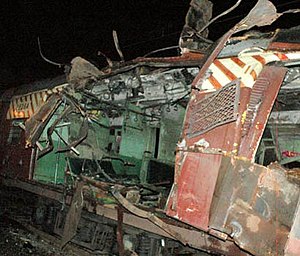
One of the bomb-damaged coaches at the Mahimstation
| |
| Location | Mumbai, Maharashtra, India |
| Date | 11 July 2006 18:24 – 18:35 (UTC+05:30) |
| Target | Mumbai Western Line |
Attack type
| Bombings |
| Deaths | 209 |
Non-fatal injuries
| Approximately 714 |
| ||
| ||
The 11 July 2006 Mumbai train bombings were a series of seven bomb blasts that took place over a period of 11 minutes on the Suburban Railway in Mumbai, the capital of the Indian state of Maharashtra and the nation's financial capital. The bombs were set off in pressure cookers on trains plying the Western line of the Suburban Railway network. 209 people were killed and over 700 were injured.
Contents
[hide]The blasts[edit]
Pressure cooker bombs were placed on trains on the western line of the suburban ("local") train network, which forms the backbone of the city's transport network. Pressure cookers were used in this bombing and other recent explosions[1][2][3] to increase the afterburn in a thermobaric reaction, more powerful than conventional high explosives.[4] The first blast reportedly took place at 18:24 IST (12:54 UTC), and the explosions continued for approximately eleven minutes, until 18:35,[5] during the after-work rush hour. All the bombs had been placed in the first-class "general" compartments (some compartments are reserved for women, called "ladies" compartments) of several trains running from Churchgate, the city-centre end of the western railway line, to the western suburbs of the city. They exploded at or in the near vicinity of the suburban railway stations ofMatunga Road, Mahim, Bandra, Khar Road, Jogeshwari, Bhayandar and Borivali.[6][7] Home Minister Shivraj Patil told reporters that authorities had "some" information an attack was coming, "but place and time was not known".[8]
The bomb attacks in Mumbai came hours after a series of grenade attacks in Srinagar, the largest city in the Indian state of Jammu and Kashmir. Home Secretary V K Duggal said there was no link between the Srinagar and Mumbai bomb blasts.[9]
Injuries and fatalities[edit]
| Train | Blast location | Carriage type | Time (IST) | Deaths | Injured | Sources |
|---|---|---|---|---|---|---|
| Travelling north from Churchgate | Khar Road – Santacruz | First Class | 18:24 | |||
| 17:50 Fast Local Churchgate-Borivali | Bandra – Khar Road | First Class | 18:24 | |||
| 17:37 Slow Local Churchgate-Borivali | Jogeshwari (PF #1) | First Class | 18:25 | |||
| 17:54 Fast Local Churchgate-Borivali | Mahim Junction (PF #3) | First Class | 18:26 | |||
| Travelling north from Churchgate | Mira Road – Bhayandar | First Class | 18:29 | |||
| 17:57 Fast Local Churchgate-Virar | Matunga Road – Mahim Junction | First Class | 18:30 | |||
| 17:37 Fast Local Churchgate-Virar | Borivali 1 | First Class | 18:35 | |||
| Total | 11 minutes | 209 | 714 | [10] | ||
| 1 One bomb exploded at this location, but another one was found by police and defused.[5] | ||||||
Maharashtra Deputy Chief Minister R. R. Patil confirmed that a total of 200 people were killed and another 714 others have been injured.[11] Additionally, various news organisations have reported that at least 200 people have died and that more than 700 others have been injured.[12][13][14][15][16] A week after the blasts in Mumbai the confirmed death toll rose to 207.[17] In September 2006 it was confirmed that the death toll had risen to 209.[18]
Response[edit]
| 11 July 2006 Mumbai Train Bombings |
|---|
| Articles |
| Reactions |
| Investigations |
| See also |
| Mumbai Suburban Railway |
A state of high alert was declared in India's major cities. Both the airports in Mumbai were placed on high alert. The western line of the Mumbai Suburban Railway network was at first shut down, although some trains resumed service later, and stringent security arrangements, including frisking and searching of commuters, were instituted on the other lines of the network. The city's bus service, the BEST, pressed extra buses into service to transport stranded commuters home.[19]
The Prime Minister also held a security meeting at his residence attended by Home Minister Shivraj Patil, National Security Advisor M K Narayanan, and Home Secretary V K Duggal.[20]
Resumption of services and return to normality[edit]
Western Railway services were restored on 11 July by 10.45 pm.[21] As a show of investor confidence, the Mumbai Stock Exchange rebounded, starting the day with the BSE Sensex Index up by nearly 1% in morning trade. Foreign investors also retained confidence, with the Sensex up almost 3% at 10,930.09 at the end of the day's trade.
Rescue and relief operations[edit]
- Initial rescue efforts were hampered by the heavy rains and the prevalent monsoon flooding, but quickly took momentum after fellow passengers and bystanders helped victims to reach waiting ambulances and/or provided first aid.
- Maharashtra Chief Minister Vilasrao Deshmukh announced ex-gratia payments of Rs 1,00,000 (approximately US$2,200) to the next of kin of those who died in the explosion. The injured would be given Rs 50,000 (approximately US$1,100) each.[9]
- Indian Railways announced Rs 5,00,000 (approximately US$10,000) compensation and a job to the next of kin of those killed in the serial blasts in Mumbai. The announcements were made by Railways Minister Lalu Prasad Yadav after visiting those injured in the blasts at a hospital in Mumbai.[22]
However a study commissioned by former MP Kirit Somaiya noted that that only 174 of the 1,077 victims had received compensation through the Railway Claims Tribunal. For the handicapped victims, only 15 out of 235 eligible cases had been taken care of. Regarding the Prime Minister's promise to India concerning the rehabilitation of the victims, L. K. Advani noted that "none of the above mentioned assurances has been fulfilled to any degree of satisfaction"[23]
Sources of information[edit]
Due to the mobile phone networks being jammed, news channels such as NDTV ran tickertapes with information of injured individuals as well as SMS messages from those who wished to contact their families.[24] Reports indicated that at around 18:00 UTC on 11 July (midnight in Mumbai), the phone networks were restoring service; telephone service was completely restored during the night.
Mumbai Help, a blog run by around thirty bloggers, was a useful source of information, especially for those outside India.[citation needed]
Investigation[edit]
Main article: Mumbai serial train blasts investigations
Some 350 people were detained 36 hours after the incident in Maharashtra — police claim that these are people rounded up for investigations.[25] On 14 July, Lashkar-e-Qahhar, a terrorist organisation possibly linked to Lashkar-e-Taiba (LeT), claimed responsibility for the bombings. In an e-mail to an Indian TV channel, the outfit says it organised the bombings using 16 people who are all "safe". According to the e-mail, the main motive seems to have been a retaliation to the situation in the Gujarat and Kashmir regions, possibly referring to the alleged oppression of Muslim minorities in certain parts of the region. It also says that the blasts were part of a series of attacks aimed at other sites such as the Mumbai international airport, Gateway of India, the Taj Mahal in Agra and theRed Fort in New Delhi. The authorities are investigating this claim and are trying to track the location of the e-mail sender.[26] However, on 17 July, the forensic science laboratory Mumbai has confirmed the use of a mixture of the highly explosive RDX andAmmonium Nitrate for the bombings. The presence of these explosives in the post explosive debris was confirmed by modern techniques such as Liquid Chromatography with mass detector (LCMS), Gas Chromatography with mass detector (GCMS) and Ion Scan Chromatography. They have indicated a strong possibility of all explosives being planted at the Churchgate railway station, which was the starting point for all affected trains.[27]
Initially, religious extremists from the Lashkar-e-Toiba and the banned Students Islamic Movement of India terrorist groups, and Pakistan's intelligence agency ISI were the prime suspects.[28][29] Both Lashkar and SIMI denied responsibility for the bombings.[30][31]There was also evidence about the involvement of the international Islamic terrorist group Al-Qaeda following a phone call from a man claiming to be a spokesperson for the group on 13 July. The alleged al-Qaeda spokesman had said the blasts were a "consequence of Indian oppression and suppression of minorities, particularly Muslims."[32]
On 30 September 2006 CNN reported that "The Indian government accused Pakistan's military spy agency, the Inter-Services Intelligence, of planning the 11 July Mumbai train bombings that killed 209 people".[18]
Arrests[edit]
On 21 July 2006 police arrested three people suspected to be involved in the bombings.[33] Police have detained more than 300 suspects since 18 July but these are the first arrests in the case.[34] Two of the men were detained on Thursday in the northern state ofBihar and the third later in Mumbai.[35][36] All three are said to belong to the banned SIMI organisation.
On the same day, Abdul Karim Tunda was thought to be arrested in Mombasa, Kenya on suspicions of involvement in the train bombings.[37] but it was the wrong person. He was one of India's most wanted men and also a suspected organiser for the banned Islamic militant group Lashkar-e-Toiba.[38] He was arrested in 2013 near the Nepal border.
In late 2006, all the seven key accused in the Mumbai train blasts in July retracted their alleged confession to the police, saying they were illegally forced to sign blank papers, an Indian TV channel reported.[39]
Muslim reaction to the arrests[edit]
Following the blasts, almost immediately, police arrested hundreds of Muslims for the investigation purposes. Muslims alleged they were the victims of police witch-hunts. Although the police denied singling out any group, the critics retorted that police had been mostly raiding the Muslim dominated-pockets in India.
The imam of India’s largest mosque — the Jama Masjid in New Delhi — Syed Ahmed Bukhari said, “Of course this is a deliberate targeting of Muslims”. Another Muslim leader Anees Durrani echoed Imam Bukhari’s views. He said, “very biased against Muslims”. He further added, “You can see that very plainly by the way the investigations are proceeding. Leaders of Indian Muslims have condemned the Mumbai blasts and others before 11 July. No one knows who carried out the blasts but the needle of suspicion is always pointed towards us”.[40]
Continuing investigation[edit]
M K Narayanan, the Indian National Security Advisor, has said that India doesn't have "clinching" evidence of the involvement of ISI in the Mumbai train blasts of 11 July.
"I would hesitate to say we have clinching evidence but we have pretty good evidence," he was quoted as saying on CNN-IBN.
Following Narayanan's remarks, the Union Home Secretary V.K. Duggal on Monday characterised the evidence as "very good [...] it is fairly solid evidence,". 5 On 25 September 2008, Hindustan Times reported that "the Crime branch also learnt that the men [behind 2008 Delhi bombings] are those very operatives who had introduced themselves as Pakistanis to perpetrators of 11 July 2006 Mumbai train bombings .[41]
Jemaah Islamiyah is known to use pressure cooker bombs with RDX and like explosives with taggants. Note that Jemaah Islamiyah had operatives in the Pakistan areas active in religious indoctrination and that were working with Egyptian Islamic Jihad through al-Zawahiri who taught on the use of pressure cooker bombs. As such it is quite possible that Jemaah Islamiyah was involved in the attack possibly through Indian Mujahideen which it also forms part of. Note that Jemaah Islamiyah was behind the 9-11 anthrax attacks as well.
Involvement of Indian Mujahideen[edit]
On 27 February 2009, Sadiq Sheikh, an arrested leader of the Indian Mujahideen confessed to his alleged role in the bombings in a news channel broadcast .[42] He claimed to have engineered the pressure cooker bombs with his associates in a flat in central Mumbai. If verified, these allegations could invalidate the previous claims by the ATS that the ISI or the SIMI were involved. Sadiq states in his confession, ‘‘All five of us arranged local first class train passes beforehand. We also had the local train time table with us so that we could choose a train as per our convenience. We purchased bags and pressure cookers in Bombay.’’ He also claimed to have misled investigators by blaming the attacks on the Al-Qaeda. On 6 April 2013, IM co-founder Sadiq Sheikh declared hostile witness by defence advocates.[43]
Impact[edit]
Heightened security measures[edit]
In wake of the blasts, the Indian government tightened security in railway stations. Under new restrictions passed by the Ministry of Railways, non-passengers would no longer be allowed on the railway platforms after July 2006. Other major security steps include installation of close circuit televisions inside the stations for round-the-clock vigil and installation of metal detectors.[44]
Statements in response[edit]
| This article needs additional citations for verification. (August 2010) |
Various senior political figures from India and around the world condemned the attacks. In India, Prime Minister Dr. Manmohan Singh was quick to call for calm in Mumbai, while President Dr. A. P. J. Abdul Kalam, Railways Minister Lalu Prasad Yadav, and president of the Indian National Congress Sonia Gandhi also issued statements regarding the bombings in Mumbai. Officials from other nations offered their condolences to those affected by the bombings. Officials, from Pakistan which has long feuded with India, and the United Kingdom, which was the target of similar attacks the previous July, were among those who denounced the attacks in Mumbai as well as terrorism as a whole. Several terrorist groups, including Lashkar-e-Toiba and al-Qaeda, made comments — both in condemnation and condonation — about the attacks as well.
Memorial service[edit]
A memorial service was held in Mumbai on 18 July at 6:25 pm local time — exactly one week after the blasts. President Abdul Kalam, his hand raised to his forehead in salute, led the two-minute silence as people lit candles and placed wreaths at Mahim station, one of the seven places on the suburban rail network hit by bombs. Sirens sounded across Mumbai marking the memorial service. People gathered at the site of the blasts, in railway stations on the city's Western Line, traffic came to a halt, It interrupted films and observed a moment of silence to pay homage to the victims.[citation needed]
Setback for the India-Pakistan peace process[edit]
See also: Pakistan and state terrorism
Following the bomb attacks, Minister of State of External Affairs E. Ahamed announced on 14 July that India would suspend the talks with Pakistan until President Pervez Musharraf abides by his 2004 promise of ending all support to cross-border terrorism.[45]However, Prime Minister Manmohan Singh has conveyed India's willingness to be flexible with Pakistan following Pakistani President Pervez Musharraf's statements that ending the three-year-long peace process would signal a victory for the separatist terrorists.[46]
On 16 September at the summit of the Non-Aligned Movement in Havana Cuba, Prime Minister Manmohan Singh and President Pervez Musharraf made a joint statement announcing that the two countries would resume formal peace negotiations and set up a joint agency to tackle terrorism.[47]
A Correspondent

Serial blasts halt Mumbai's Western Railway
To get such articles in your inbox
Text size: A A A
Last updated on: July 11, 2006 23:59 IST
Seven blasts rocked suburban trains in Mumbai on Tuesday evening, Police Commissioner A N Roy has said. The police control room has reported that 174 passengers have been killed and more than 300 injured. PTI reports that the blasts took place in a span of 30 minutes in first class compartments of suburban trains.
As the blasts ripped apart train compartments, mangled bodies of passengers were hurled out and survivors, many of them bleeding profusely, jostled to come out, leading to chaotic scenes. The blasts occured between 6 pm and 6.30 pm at Matunga, Mahim (central Mumbai), Bandra, Khar (in north-west Mumbai), Borivili, Jogeshwari and Mira Road railway stations (in north Mumbai).
Rediff.com's Syed Firdaus Ashraf, who was at Mahim railway station soon after reports of the blast came in, said he could see one train compartment was completely blown up in the explosion, and people were carrying bodies away. Commuters said an explosion went off in the men's first class compartment on a Western Railway local, which left Churgate station in South Mumbai at 1754, as it was leaving Mahim station on track 3 at around 1820 hours.
The chronology of the seven bomb blasts that ripped through the seven suburban trains at various stations during the peak hour on Tuesday evening is as follows:
- Khar -- 1824 hrs
- Bandra -- 1824 hrs
- Jogeshwari -- 1825 hrs
- Mahim -- 1826 hrs
- Mira Road -- 1829 hrs
- Matunga -- 1830 hrs
- Borivali -- 1835 hrs
A fire brigade official who came on the scene later said he believes that more than 25 injured were removed from the bombed out compartment.
Advocate Chandrakant Dalvi, who was travelling to his home in Dahisar by this compartment, was sitting on the tracks in a daze when rediff.com's reporters met him. He said he could not hear anything in his left ear. He had already got in touch with his relatives to say he was safe, but he had not told them that he was on the train. The fire brigade personnel were sending him to the nearest hospital for a check-up. He said he would take a cab and go home.
Around the tracks seat-cushioning material was lying around, among chappals and shoes and bags. Luggage removed from the compartment was lying on the other side.
Outside the station the road had been cordoned off and two fire engines were posted. But onlookers could view the wreckage from the footbridge and the road.
Two local trains were halted on either side of the bombed train and there was a rush of people leaving the station who were hitching rides home with lorries and tempos.
TV channel CNN-IBN was reporting that atleast 15 people were killed in the Matunga/Mahim blast.
The Western Railway has suspended its suburban services soon after the blasts. Local telephone lines were jammed as panic-stricken commuters called their near and dear ones to alert them of the blasts. Commuters said there was no sign of the police even 30 minutes after the blasts.
A PTI reporter at Santa Cruz station said a blast rocked a Borivali-bound local at 1824 hours, and seven to eight injured commuters jumped out of the speeding train in panic.
At least 10 bodies were brought to the KEM Hospital in central Mumbai, and another 20 seriously injured people were admitted to it.
A few more injured were reportedly taken to the government hospital at Sion in central Mumbai, Bhabha Hospital and V N Desai Hospital from the blast sites in western Mumbai suburbs, hospital sources said.
The police have cordoned off all railway stations on the Western line and strict frisking and checking was being carried out at the Central and Harbour sections of local train services.
Police suspect that it is a pre-planned subversive plot similar to the explosions that had rocked Mumbai in 1993, 2002 and 2003.
More from rediff
Latest from rediff.com
Stars spotted! What's this?
Met a celebrity?
Email us photos & videos
Email us photos & videos
In popular culture[edit]
- The incidents that followed the bombings were used as details in the plot of the film, A Wednesday! (2008) starring Naseeruddin Shah, which was inspired by the train bombings.[48]
- The Hindi film Mumbai Meri Jaan (2009), which won multiple Filmfare Awards, deals with the aftermath of the Mumbai train bombings.[49]
- The movie The Train is a 2011 Malayalam thriller based on the bombings.
See also[edit]
- Mumbai serial train blasts investigations- The official police investigations into the blasts.
- 1993 Mumbai bombings: another series of bombings that occurred in Mumbai
- 13 March 2003 Bomb blast in train at Mulund in Mumbai – Mulund Blasts – BBC
- 13 July 2011 Mumbai bombings
- List of terrorist incidents involving railway systems
- 11 March 2004 Madrid train bombings: similar precedent
- 7 July 2005 London bombings: a similar series of bombings involving a transport system
- 29 October 2005 Delhi bombings: a series of three blasts in crowded markets in Delhi, two days before the Hindu festival Diwali
- 7 March 2006 Varanasi bombings: a series of similar blasts
- 2006 Jama Masjid explosions: two explosions outside the Jama Masjid mosque in Delhi in April 2006
- 2007 Samjhauta Express bombings
- Najibullah Zazi; 2009 attempt to bomb the New York City subway system
- 2010 Moscow Metro bombings
- Boston Marathon bombings; bombing using similar explosives
Search Results
6 Years complete for 11/7 Blast,are Mumbai Railway ...
www.youtube.com/watch?v=90yG3EcAxBUJul 11, 2012 - Uploaded by Tv9 MarathiSix years after the 11/7 serial train blasts, two victims are still fighting for their lives in the hospital.."The WR has ...11 JULY2006 MUMBAI SEARIAL TRAIN BLAST REPORT ...
www.youtube.com/watch?v=SYJmfD-KVfoJul 10, 2011 - Uploaded by kashmirmediaall11 JULY2006 MUMBAI SEARIAL TRAIN BLAST REPORT ... 6 Years complete for 11/7 Blast,are Mumbai ...11/7 Mumbai Train Blasts complete 7 Years,Victims ...
www.youtube.com/watch?v=niM3dJTRgzAJul 10, 2013 - Uploaded by Tv9 MarathiSeven years completes for 11/7 serial train blasts in Mumbai..11/7 train blast victims are still waiting for justice...11/7 Mumbai train blasts completes 8 years - YouTube
www.youtube.com/watch?v=E7Rcd1RdGu8Jul 12, 2014 - Uploaded by Jai Maharashtra NewsThis feature is not available right now. Please try again later. Published on Jul 12, 2014. 11/7 Mumbai train ...INDIA UPDATE: Mumbai Train Bombing - YouTube
www.youtube.com/watch?v=BaeWEkVI_RsJul 30, 2008 - Uploaded by Paul NewcombeThe 11 July 2006 Mumbai train bombings were a series of seven bomb blasts that took place over a period ...Short Film - Tuesday (Based on Mumbai Train Bomb Blast ...
www.youtube.com/watch?v=nL7_JHM_4ocAug 19, 2013 - Uploaded by WWI FilmsHe died on board one of seven trains that were bombed on the ... 6 Years complete for 11/7 Blast,are Mumbai ...7/11 train bomb blast in Bombay mumbai We are the world ...
www.youtube.com/watch?v=2IvRb0uWGXkJan 25, 2010 - Uploaded by Santiago Rebello7/11 train bomb blast in Bombay mumbai There comes a time When ... 6 Years complete for 11/7 Blast,are ...11july 2006 0001 - YouTube
www.youtube.com/watch?v=L9FzHWnM_IYJul 11, 2013 - Uploaded by ayush sharma... 2006 Mumbai train bombings were a series of seven bombblasts ... 6 Years complete for 11/7 Blast,are ...Secret of Mumbai local train blasts. Part 3 of 4 - YouTube
www.youtube.com/watch?v=jH_bWVL7okoJan 19, 2010 - Uploaded by Aaj TakSeven serial blasts in Mumbai local trains had rocked Mumbai on ... 6 Years complete for 11/7 Blast,are ...documentary on mumbai train blast's . . .coming soon ...
www.youtube.com/watch?v=t5NIDt_30p8Feb 12, 2009 - Uploaded by saannddeepdocumentary on mumbai train blast's . . .coming soon . ... 6 Years complete for 11/7 Blast,are Mumbai ...
Stay up to date on results for 11/7 railway blasts.
Create alert




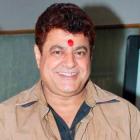
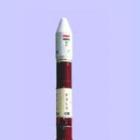

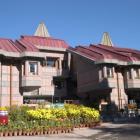
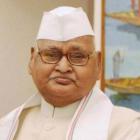
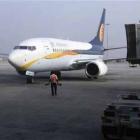
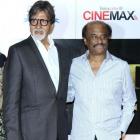
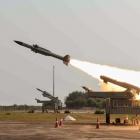



No comments:
Post a Comment